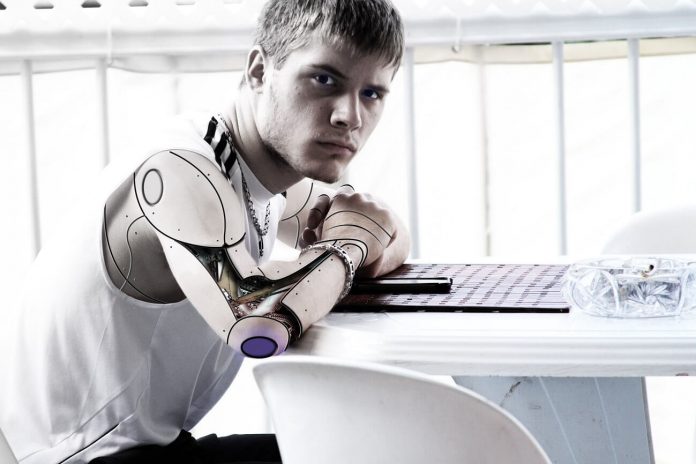Table of Contents
It’s been a long time since people had a dream of building machines that could decide themselves. Although these auto-thinking machines are a staple of many science fiction films, fully sensitive machines still remain a fantastic dream. We have made a lot of progress in this area, though, and right now we are in a situation where we have a plethora of Artificial Intelligence examples i.e.
Narrow AI or Weak AI. These are machines or programs are capable enough and too efficient to accomplish a simple or complex specific task by themselves. For instance, an automatic car can take you from your office to home, taking into account traffic conditions, environmental factors, etc.

There are many digital helpers such as “Amazon Alexa” or “Apple Siri” on the market who simplify our routine lives. But since the beginning of the idea of artificial intelligence, there is always a constant debate, without a doubt. There are divided opinions as to whether people dig their own tombs in smart machines or if they help catapult human civilization to higher levels. Let’s have a look at and decide on the major benefits and Risks of Artificial Intelligence.
Major Benefits of Artificial Intelligence
Learning algorithms are being used by all machines to imitate people’s intellectual skills and to solve a complex or simple problem.
Overall Work Efficiency Gets Better
Machines powered by Artificial Intelligence perform an incredibly perfect in a specific repeated task. The simple reason is that each time they perform this particular task, they remove human errors from their tasks to produce accurate results. In addition, unlike humans, these machines can work 24X7.
Thus, they avoid the requirement for two sets of employees to work on important tasks in a day and night shifts. For instance, chat assistants powered by AI can answer customer inquiries and provide visitors with support every minute of the day and increase a company’s sales.
Work with Great Precision
Another one of the major benefits of Artificial Intelligence is that scientists work to teach machines powered by artificial intelligence to solve complex equations and perform critical tasks alone so that the results are more accurate than their human counterparts. These machines are especially necessary for medical use because of the criticalities of these tasks because of their high accuracy. Robots improve the diagnosis of severe human body condition and perform delicate operations in order to minimize the risk of human lives.
Reduces Training and Operation Costs
Machine learning algorithms such as Deep Learning and neural networks are used by AI to study new things like people. This eliminates the need to write a new code each time when new things are learned. There are considerable research and development worldwide in the development of AI machines that optimize the ability of their machines to learn new processes much faster. This would reduce the cost of training robots far below that of humans. In addition, machines reduce operating costs already thanks to their high efficiency and precision.
Machines, for example, do not stop and can repeatedly do the same worldly task without any downtime or change in outcomes.
Get Better Processes
The best part about the use of AI machines is that they allow us to collect humble amounts of data related to their work. These data can be processed in the quantitative analysis to gather deep insights into the processes so that we can further optimize them. AI machines are increasing their learning skills even more and more to analyze themselves.
Major Risks of Artificial Intelligence
While acclaimed by technologists as a boon for humanity, many scientists and regular citizens are afraid of Artificial Intelligence. This fear has been made several times on the silver screen as films depicting the dystopian future of AI machines which has taken the world over. The Matrix and Terminator are the most notable of these.
Artificial Intelligence is Untenable
Intelligent machines feature a range of processors that contribute characteristically high computing power. These computer chips are a major component of rare earth materials such as selenium. Moreover, these machines’ batteries run on Lithium – another rare element in the earth’s shell.
The increased mining of these materials damages our environment irreversibly quickly. They also consume enormous amounts of functioning power, which puts serious pressure on our power plants and damages the environment once again.
Creates Unemployment
No doubt, Artificial Intelligence machines do much better than human routines and repeatable tasks. Many companies would prefer machinery to be more profitable instead of people, thus reducing the jobs available for a human workforce.
Perhaps a Threat to Humanity
Sources told TheITInfo, one of the most intelligent persons, as of now, working on Intelligent Artificial is “Elon Musk”. This guy has publicly stated that AI represents the greatest future threat to humanity. The dystopian future shown in science fiction films is – therefore, not impossible. Furthermore, “Stephen Hawking” has consistently demonstrated his disagreement with progress on AI. The greatest risk with AI is that machines will become more aware of people if they become rogue.
Wrapping Up
There are two faces of every coin and there is no different artificial intelligence. In many applications, the growth of AI-powered machines has, without a doubt, eased our lives. However, the creation of ethical codes and policies must be strongly stressed in order to ensure that AI risks are minimized. And there you have it. Is artificial intelligence good or bad? What are your opinions? Let us know in a comment section below.















